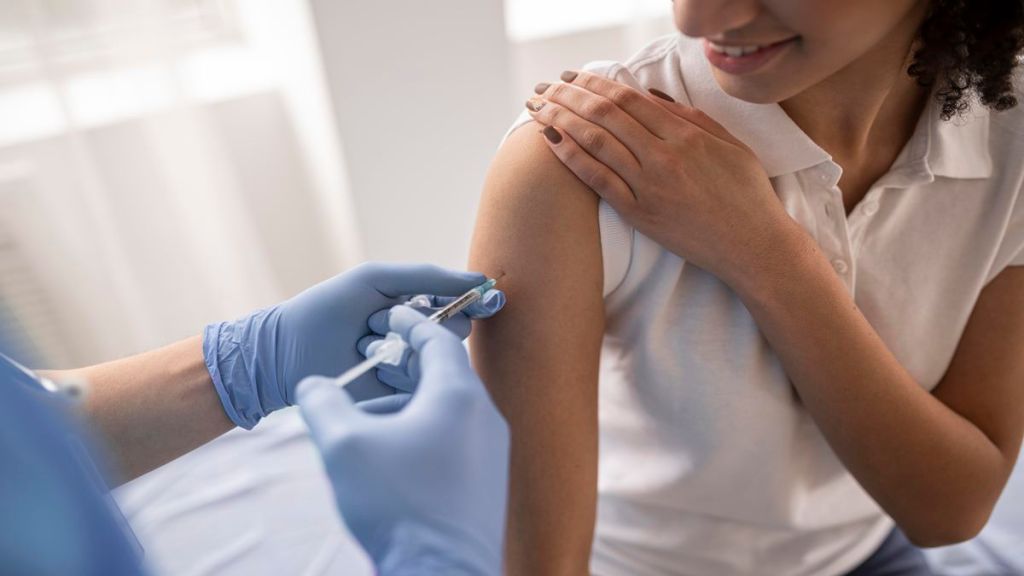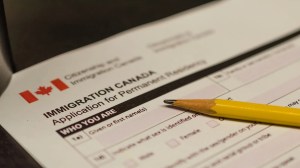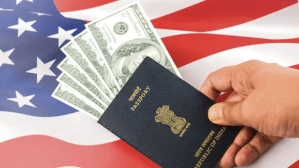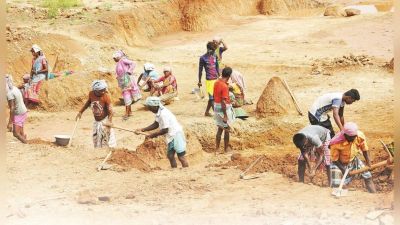On Thursday, Finance Minister Nirmala Sitharaman announced the interim budget 2024. During her budget speech, the Finance Minister informed that the government will encourage vaccination among girls of age group 9-14 years to prevent the spread of cervical cancer.
Today, the news of social media star Poonam Pandey’s death due to cervical cancer has yet again put the disease under the spotlight and emphasised the need for a Human papillomavirus (HPV) vaccine against cervical cancer.
Doctors and health experts have often warned against the increasing incidences of cervical cancer and the advocated for HPV vaccine to prevent the disease. On Thursday, the World Health Organization (WHO) released the latest estimates of the global burden of cancer. According to the report, cervical cancer was the eighth most commonly occurring cancer globally and the ninth leading cause of cancer death, accounting for 661 044 new cases and 348 186 deaths.
In India, the top five cancers among Indian women were found to be those of breast, cervix, ovary, mouth and colorectum. In India, breast, oral and cervical cancer accounted for 32 per cent of the new cases.
What is Human papillomavirus (HPV)?
Human papillomavirus (HPV) is one of the most common sexually transmitted infection (STI). There are more than 100 varieties of human papillomavirus (HPV). According to Mayo Clinic, some types of human papillomavirus (HPV) infection cause warts, and some can cause different types of cancer.
Although, most HPV infections don’t lead to cancer. However, some types of genital HPV can cause cancer of the lower part of the uterus that connects to the vagina (cervix). Moreover, other types of cancers, including cancers of the anus, penis, vagina, vulva and back of the throat (oropharyngeal), have been linked to HPV infection.
What are Human papillomavirus (HPV) vaccine?
Dr Salil Patkar, Consultant-Medical Oncology, Fortis Hiranandani Hospital, Vashi told Financial Express.com that cervical cancer is one of the only cancers in the world against which there is a vaccine available.
“Since the cancer is caused by a virus known as the Human Papilloma Virus (HPV), a combination of taking the cervical vaccine along with Pap smear screening can bring down the incidence of cervical cancer by nearly 90%, which is remarkable. The vaccine should be administered to all girls between the ages of 9 to 14,” Dr. Patkar said.
When to Human papillomavirus (HPV) vaccine should be recieved?
Dr. Patkar revealed that the efficacy of the vaccines is best if administered before the person is exposed to HPV.
“…it is advised to administer them before the first sexual activity. WHO recommends vaccination for girls at age 9-13 years but ideally 11 or 12 years. The optimal vaccination schedule is 2 doses at 0 and 6 months. After age of 15 years, the recommended schedule of vaccination is 3 doses at 0, 2 and 6 months. The vaccine series is not restarted if the dosing schedule is interrupted instead the required dose is given at the earliest. The vaccine is still recommended after HPV infection as it provides protection against strains which are not acquired upto the age of 23 years,” he told Financial Express.com.
Who should get Human papillomavirus (HPV) vaccine?
According to the Centers of Disease Control and Prevention (CDC), HPV vaccination is recommended at ages 11–12 years but vaccines can be given starting at age 9 years.
“Teens and young adults through age 26 years who didn’t start or finish the HPV vaccine series also need HPV vaccination,” CDC maintains.
How many doses should be taken?
CDC recommends that 11- to 12-year-olds receive two doses of HPV vaccine 6 to 12 months apart.
The first dose is routinely recommended at ages 11–12 years old. The vaccination can be started at age 9 years.
Only two doses are needed if the first dose was given before 15th birthday.
Teens and young adults who start the series later, at ages 15 through 26 years, need three doses of HPV vaccine.
Children aged 9 through 14 years who have received two doses of HPV vaccine less than 5 months apart will need a third dose.
Three doses are also recommended for people aged 9 through 26 years who have weakened immune systems.
It is noteworthy that vaccination is not recommended for everyone older than age 26 years.
What are the types of Human papillomavirus (HPV) vaccines available in India?
Cervavac (quadrivalent) is India’s first indigenous HPV vaccine, launched in January 2023, It has been developed and manufactured by Pune-based Serum Institute of India (SII). It targets the same four HPV types as Gardasil.
Globally, there are three HPV vaccines—9-valent HPV vaccine (Gardasil 9, 9vHPV), quadrivalent HPV vaccine (Gardasil, 4vHPV), and bivalent HPV vaccine (Cervarix, 2vHPV) that have been licensed by the U.S. Food and Drug Administration (FDA). According to CDC, all three HPV vaccines protect against HPV types 16 and 18 which cause most HPV cancers.








